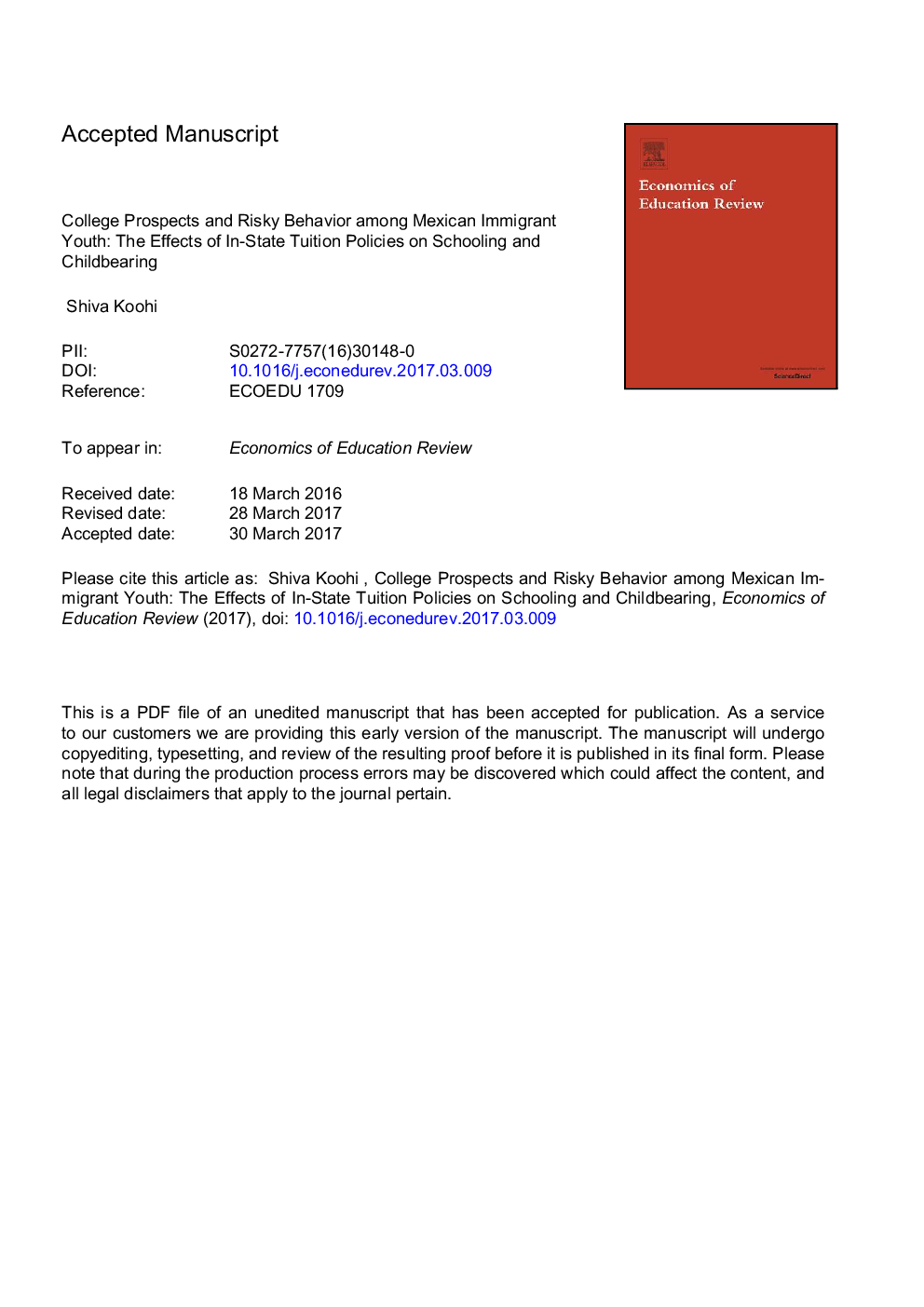| Article ID | Journal | Published Year | Pages | File Type |
|---|---|---|---|---|
| 4938333 | Economics of Education Review | 2017 | 38 Pages |
Abstract
This paper examines how a reduction in the cost of college for undocumented students affects college enrollment and adolescent risky behaviors. Prior to 2001, undocumented students in the United States faced high out-of-state tuition costs at public colleges and universities. From 2001 to 2014, twenty-one states passed in-state tuition policies, reducing the average cost of college by more than half for these students. To the extent that teens are forward-looking and aware that lower tuition increases the likelihood of attending college, this price reduction should decrease the incidence of risky behavior during adolescence among the undocumented. Exploiting the variation in timing of in-state tuition policies across states and using Mexican foreign-born non-citizenship as a proxy for undocumented status, I find that these policies increase college enrollment by about 1.2 percentage points (12% of the sample mean), decrease high school dropout incidence by about 5 percentage points for female youth (27% of the sample mean), and decrease the likelihood of first birth before age 20 by 2 percentage points (9% of the sample mean).
Related Topics
Social Sciences and Humanities
Economics, Econometrics and Finance
Economics and Econometrics
Authors
Shiva Koohi,
